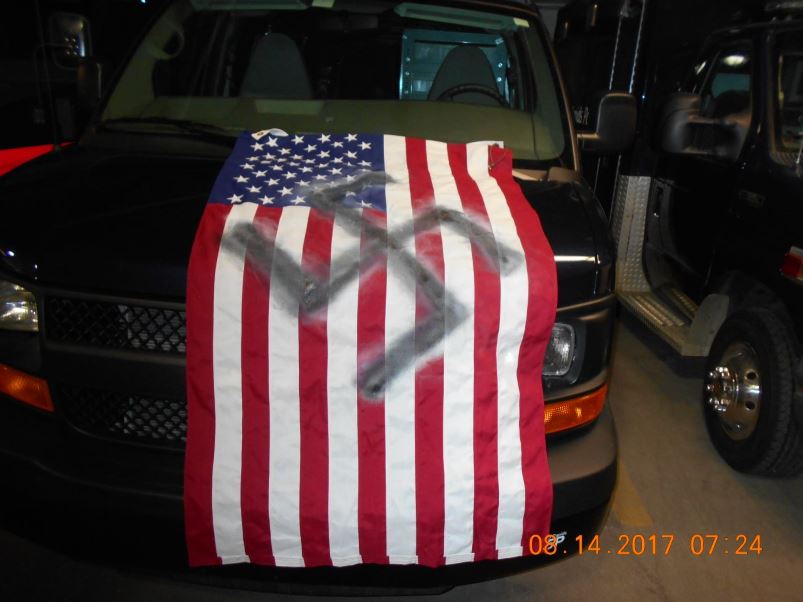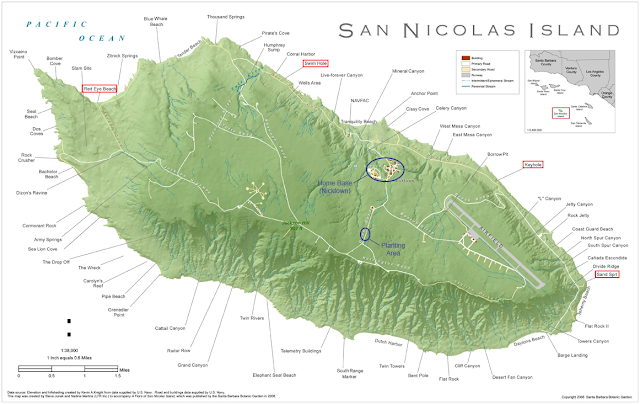The Crisis That Trumps All Others
There's a group of friends I meet for dinner every month. I'm the youngster in the bunch, as most of them go all the way back to their student radical days in the 60s. One of them is now a conservative Trump supporter, and so I asked him a question that's been on my mind for quite a while now:
How is it that all those young, idealistic hippies of the 60s - the ones who embraced peace and love and brotherhood, the ones I looked up to and tried to emulate - have turned into such angry, bigoted, Trump-supporting old people in their old age?
His answer? "Yeah, look where all that got us! We spent our lives being idealists, and it didn't pay anything, so now we've got nothing to show for it."
Okay, his tone of voice wasn't quite as hostile as the words may suggest it was, but the point still came across. At least from this guy's perspective, the values their idealism espoused back then have come up empty. He said it in a joking-not-joking way, but it struck me as incredibly sad. I've tried sticking to those ideals, and have found value in them that goes way beyond financial or material gain. Why haven't they?
I was still pondering that question when Charlottesville happened, followed (serendipitously or deliberately, I'm not sure) by an interview with civil rights leader Ruby Sales on the NPR program, On Being. She talked about "a spiritual crisis in white America... a crisis of meaning." "What is it that public theology can say," she asks, "to the white person in Massachusetts who’s heroin-addicted, because they feel that their lives have no meaning because of the trickle-down impact of whiteness in the world today? What do you say to someone who has been told that their whole essence is whiteness and power and domination, and when that no longer exists, then they feel as if they are dying?"
This is where our consumer-driven materialist society has gotten us, where all too often our value as people has a dollar sign attached to it. This is where our culture of white supremacy has gotten us, as the march of time and the arc of history wear away the privileged status of those accustomed to thinking of themselves as superior just because of what they look like.
Ronald Reagan and the Republicans of the 80s told us that all we had to do was let rich people have all the money, and the rich people would take care of us. Wealth would trickle down to everyone else. And a lot of white people believed that, because after all, the rich people were white too. Surely they would take care of their own. Except that didn't happen. The rich people had a much narrower definition when it came to "taking care of their own." They eliminated jobs through automation, and what they couldn't eliminate through automation they shipped overseas. White people who saw their value in terms of what they had suddenly found themselves having nothing. You've seen the results - drug addiction, suicide and despair. But at least they had their whiteness to fall back on - until we elected a black president and started threatening that social order as well.
Then along comes Donald Trump, who is one of those rich white folks but talks like he isn't. He tells the white people that it's okay to hate people of color, that it's a part of Making America Great Again and restoring the way things ought to be. His material success restores people's hope for their own material success. His "politically incorrect" embrace of white supremacy energizes their own sense of white supremacy. That's how things like Charlottesville happen. That's how something like this shows up in Michigan, near my sister's workplace:

This morning, I continued my reading of Thomas Merton's Faith and Violence, a book written fifty years ago that could have been written yesterday, and I came across this:
"Instead of going to war because the gods have been arguing among themselves, we go because of 'secret plots' and sinister combinations, because of political slogans elevated to the dignity of metaphysical absolutes: 'our political universe is peopled with myths and monsters - we know nothing there but absolutes.' We shed blood for high sounding words spelled out in capital letters. We seek to impart content to them by destroying other men who believe in enemy-words, also in capital letters."
The path we're going down right now doesn't end well. And we're not going to change course unless the white people driving us down that path can be shown another way. Standing up for people of color, LGBTQ people, refugees, and the rest is important, yes, but it's only a holding action. The battle isn't going to be won through force - not physical force, and not political force, as either of those "victories" will only last until the other side can regroup and come back with renewed force of their own. We must overcome evil with good, by establishing a new sense of value that goes beyond materialism or racial identity.
How do we do that? Beats the heck outta me. But Ruby Sales is the second African-American civil rights figure this year (Delonte Gholston was the first) to tell me that I need to go back and minister to my "own people." It's part of what makes me think that I'll end up going back to Midwestern America someday. Time will tell.
How is it that all those young, idealistic hippies of the 60s - the ones who embraced peace and love and brotherhood, the ones I looked up to and tried to emulate - have turned into such angry, bigoted, Trump-supporting old people in their old age?
His answer? "Yeah, look where all that got us! We spent our lives being idealists, and it didn't pay anything, so now we've got nothing to show for it."
Okay, his tone of voice wasn't quite as hostile as the words may suggest it was, but the point still came across. At least from this guy's perspective, the values their idealism espoused back then have come up empty. He said it in a joking-not-joking way, but it struck me as incredibly sad. I've tried sticking to those ideals, and have found value in them that goes way beyond financial or material gain. Why haven't they?
I was still pondering that question when Charlottesville happened, followed (serendipitously or deliberately, I'm not sure) by an interview with civil rights leader Ruby Sales on the NPR program, On Being. She talked about "a spiritual crisis in white America... a crisis of meaning." "What is it that public theology can say," she asks, "to the white person in Massachusetts who’s heroin-addicted, because they feel that their lives have no meaning because of the trickle-down impact of whiteness in the world today? What do you say to someone who has been told that their whole essence is whiteness and power and domination, and when that no longer exists, then they feel as if they are dying?"
This is where our consumer-driven materialist society has gotten us, where all too often our value as people has a dollar sign attached to it. This is where our culture of white supremacy has gotten us, as the march of time and the arc of history wear away the privileged status of those accustomed to thinking of themselves as superior just because of what they look like.
Ronald Reagan and the Republicans of the 80s told us that all we had to do was let rich people have all the money, and the rich people would take care of us. Wealth would trickle down to everyone else. And a lot of white people believed that, because after all, the rich people were white too. Surely they would take care of their own. Except that didn't happen. The rich people had a much narrower definition when it came to "taking care of their own." They eliminated jobs through automation, and what they couldn't eliminate through automation they shipped overseas. White people who saw their value in terms of what they had suddenly found themselves having nothing. You've seen the results - drug addiction, suicide and despair. But at least they had their whiteness to fall back on - until we elected a black president and started threatening that social order as well.
Then along comes Donald Trump, who is one of those rich white folks but talks like he isn't. He tells the white people that it's okay to hate people of color, that it's a part of Making America Great Again and restoring the way things ought to be. His material success restores people's hope for their own material success. His "politically incorrect" embrace of white supremacy energizes their own sense of white supremacy. That's how things like Charlottesville happen. That's how something like this shows up in Michigan, near my sister's workplace:

This morning, I continued my reading of Thomas Merton's Faith and Violence, a book written fifty years ago that could have been written yesterday, and I came across this:
"Instead of going to war because the gods have been arguing among themselves, we go because of 'secret plots' and sinister combinations, because of political slogans elevated to the dignity of metaphysical absolutes: 'our political universe is peopled with myths and monsters - we know nothing there but absolutes.' We shed blood for high sounding words spelled out in capital letters. We seek to impart content to them by destroying other men who believe in enemy-words, also in capital letters."
The path we're going down right now doesn't end well. And we're not going to change course unless the white people driving us down that path can be shown another way. Standing up for people of color, LGBTQ people, refugees, and the rest is important, yes, but it's only a holding action. The battle isn't going to be won through force - not physical force, and not political force, as either of those "victories" will only last until the other side can regroup and come back with renewed force of their own. We must overcome evil with good, by establishing a new sense of value that goes beyond materialism or racial identity.
How do we do that? Beats the heck outta me. But Ruby Sales is the second African-American civil rights figure this year (Delonte Gholston was the first) to tell me that I need to go back and minister to my "own people." It's part of what makes me think that I'll end up going back to Midwestern America someday. Time will tell.



Comments